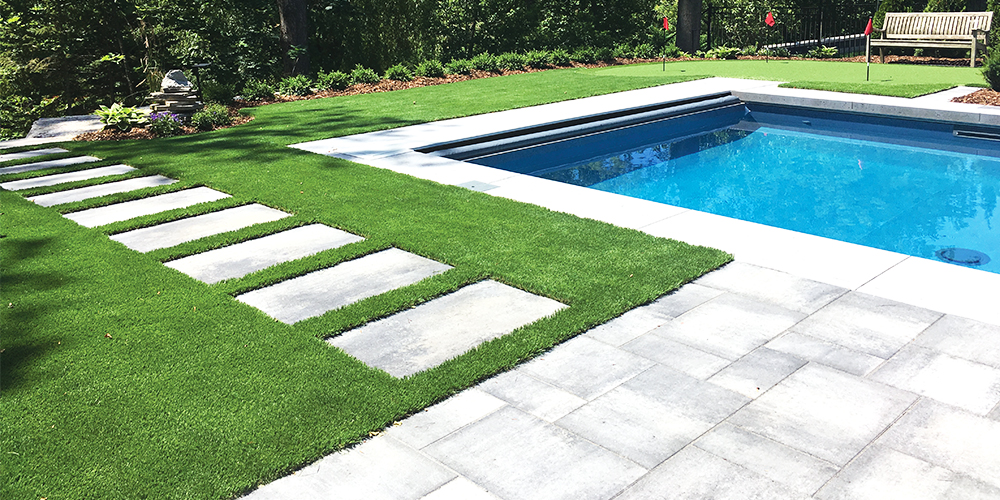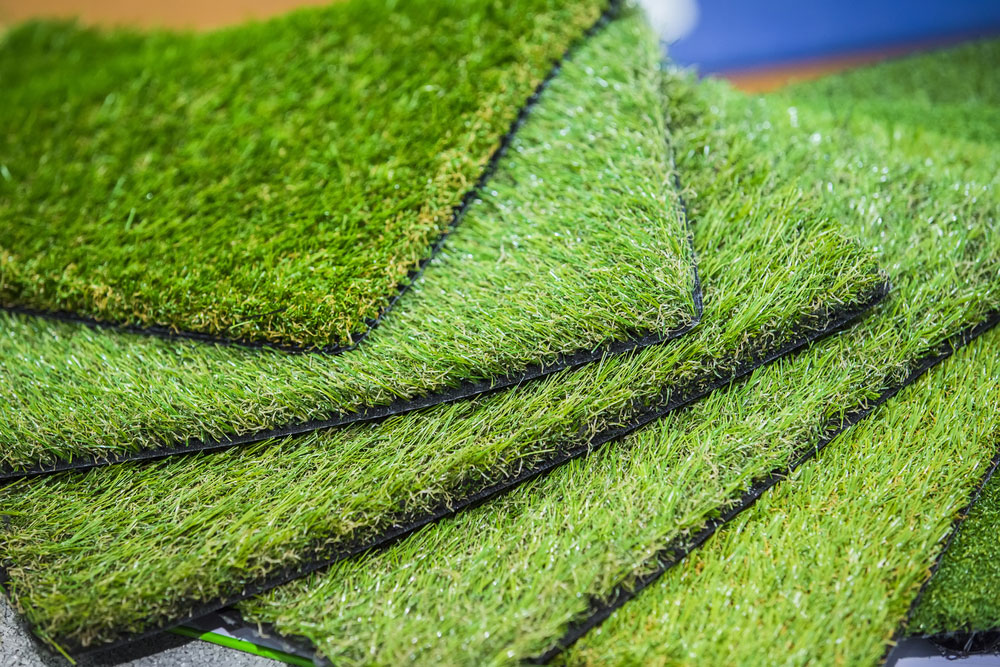Weather-Resistant Arizona Artificial Turf for Residential and Business Applications
Weather-Resistant Arizona Artificial Turf for Residential and Business Applications
Blog Article
Delve Into the Environmental Benefits of Opting for Synthetic Grass Solutions
The adoption of man-made lawn services offers a compelling chance to address pushing environmental obstacles. By significantly decreasing water use and reducing the application of harmful chemicals, these options not only advertise lasting landscaping but also protect neighborhood ecosystems. Additionally, the reduced carbon impact related to decreased maintenance tasks contributes to an extra lasting approach to land administration. The effects of these benefits expand beyond simple preservation initiatives, elevating inquiries about their long-lasting influence on habitat preservation and total environmental equilibrium. Checking out these dimensions exposes a complex interaction worth taking into consideration.
Water Preservation Advantages
One of the most substantial benefits of artificial grass is its ability to conserve water. In comparison, fabricated grass does not need watering, substantially reducing the general demand for water sources.
By eliminating the demand for regular watering, fabricated grass adds to sustainable landscape practices and assists reduce the environmental impact of excessive water intake. Moreover, the preservation of water reaches the decrease of overflow, which can lead to dirt disintegration and river pollution.
Additionally, the installation of synthetic grass allows homeowners and communities to assign water resources a lot more successfully, concentrating on essential usages such as drinking water and farming. The shift in the direction of man-made grass not just promotes liable water usage however also aligns with broader ecological objectives aimed at maintaining natural sources.
As neighborhoods progressively focus on sustainability, the water conservation advantages of synthetic grass offer a compelling instance for its adoption in business and domestic landscape design tasks.
Decreased Chemical Usage
The shift to fabricated lawn dramatically reduces the reliance on chemical therapies generally utilized in natural grass upkeep. Standard lawn monitoring normally entails the application of plant foods, chemicals, and herbicides to advertise growth and control parasites. These chemicals can present dangers to human health and wellness, local wild animals, and the environment, contributing to soil and water contamination.
In contrast, artificial turf eliminates the demand for these dangerous materials. By lessening the release of artificial substances right into the ecological community, synthetic turf advertises much healthier dirt and water systems.
In addition, the lack of chemical runoff connected with fabricated lawn setups helps safeguard local waterways from air pollution, supporting marine life and keeping biodiversity. Artificial turf companies phoenix. As neighborhoods increasingly focus on lasting techniques, going with fabricated grass provides a viable service that straightens with ecological preservation objectives. Through this change, homeowner can delight in lush green areas without compromising eco-friendly health, paving the way for a more sustainable future
Reduced Carbon Impact

Furthermore, the installation of synthetic lawn can cause significant water conservation. Natural lawns require substantial amounts of water for irrigation, which not just contributes to the carbon impact related to water removal and therapy yet also pressures neighborhood water sources. In comparison, synthetic grass requires marginal maintenance, calling for no watering, thus significantly lowering click for more info water usage and its connected energy prices.
Additionally, the long life of synthetic grass contributes to its reduced carbon impact. With a lifespan of up to 15 years or even more, the demand for frequent replacements is diminished, leading to less waste and reduced power intake in production and taking care of conventional turf options. Generally, man-made lawn presents a sustainable option for environmentally aware landscaping.
Environment Preservation
Habitat preservation is a critical consideration in the dispute over landscape design selections, especially when contrasting synthetic grass to natural grass. All-natural yard lawns frequently need comprehensive upkeep, including making use of plant foods, herbicides, and pesticides, which can adversely impact local ecological communities. These chemicals can leach right into the soil and waterways, damaging native plants and fauna and interrupting regional environments.
Synthetic turf eliminates the need for unsafe chemicals, thus safeguarding neighboring wildlife and preserving the integrity of surrounding communities. The installation of synthetic grass can lead to the conversion of previous grass locations right into even more biodiverse landscapes, such as pollinator gardens or native plant locations, which can sustain local wildlife.
Eventually, the transition to synthetic grass not only conserves water and reduces maintenance efforts yet additionally fosters an extra harmonious connection between human tasks and the all-natural setting, promoting environment conservation at the same time.
Long-Term Sustainability
Lasting sustainability is a vital factor in reviewing the benefits of man-made grass over traditional grass yards. Among the most significant advantages of artificial lawn is its toughness; it can last approximately 15-20 years with very little maintenance, whereas all-natural lawn needs constant reseeding and substitute. This longevity reduces the need for continuous resources, such as water, plant foods, and click here to read chemicals, which are crucial for maintaining a healthy turf lawn.
Additionally, synthetic lawn adds to a reduction in carbon discharges linked with lawn treatment equipment. Typical grass usually call for gas-powered mowers, trimmers, and blowers, every one of which add to air contamination. Phoenix turf companies. On the other hand, fabricated grass eliminates the need for such tools, promoting a cleaner environment
Furthermore, the production of artificial grass significantly utilizes recycled products, boosting its sustainability account. As makers adopt environmentally friendly methods, the ecological impact of synthetic grass proceeds to decrease.

Final Thought
The fostering of synthetic grass solutions provides substantial ecological benefits, consisting of substantial water conservation, decreased reliance on unsafe chemicals, and a reduced carbon impact. Synthetic turf help in maintaining all-natural habitats by minimizing land disturbance and advertising long-lasting sustainability with the use of durable products. Jointly, these aspects highlight the capacity of synthetic grass to contribute favorably to ecological health and offer a sensible option to traditional landscape design techniques in a progressively resource-conscious world.
In comparison, man-made turf does not require watering, substantially decreasing the total demand for water sources. By lessening the release of artificial compounds right into the community, fabricated grass advertises healthier dirt and water systems.
Moreover, the setup of synthetic lawn can result in substantial water preservation. In comparison, man-made turf needs minimal upkeep, requiring no watering, therefore considerably lowering water use and its linked energy expenses.

Report this page